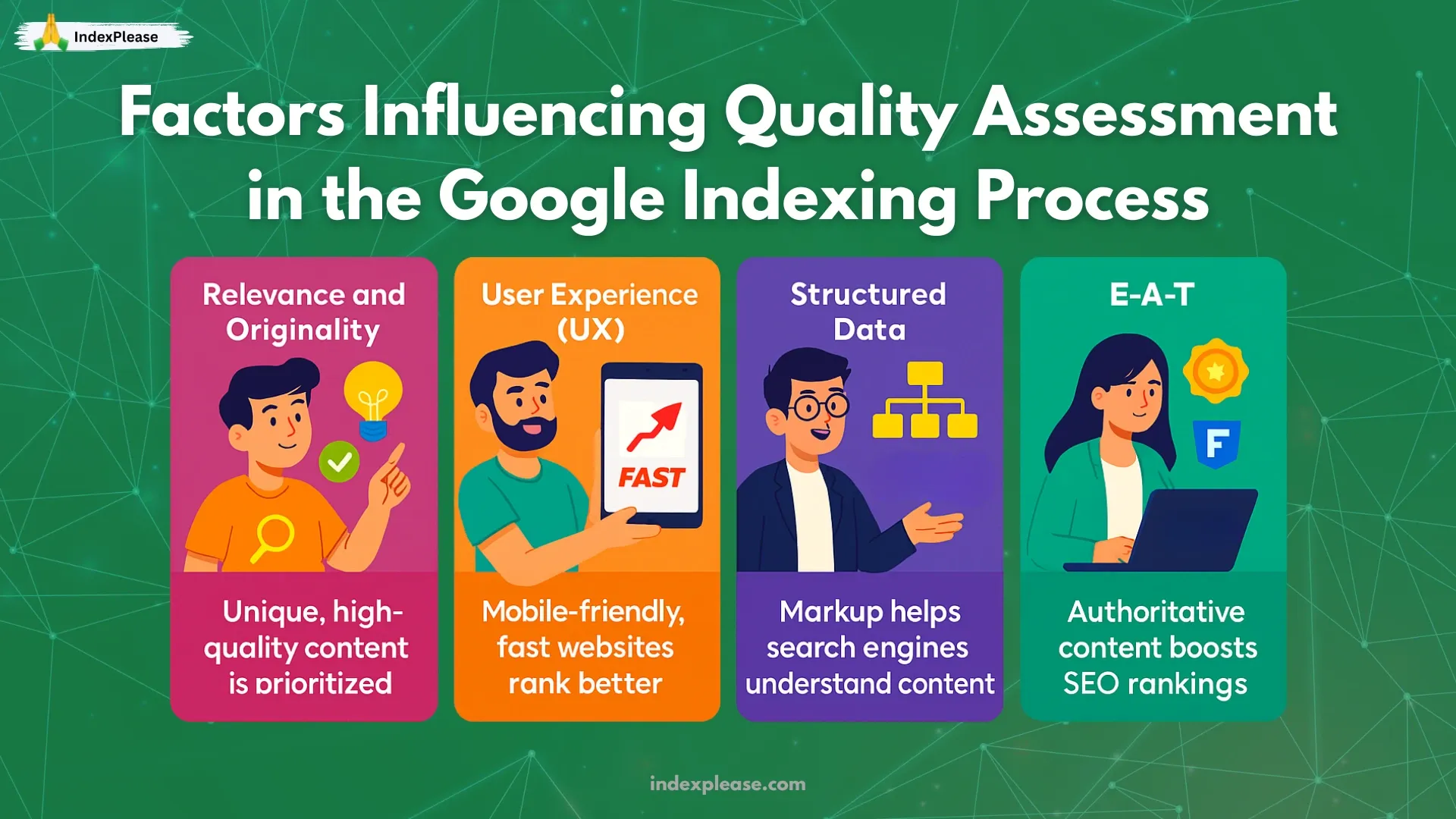
Google’s Indexing Process: When Is “Quality” Determined?
For one to improve the website’s ranking, it is important for him or her to know how the search engines work. Among the essential elements is the Google Indexing process, a fundamental step in ranking your content. With all of this, when are the instances that Google evaluates and determines the quality of your content? Let’s detail the steps in that process and see how to improve your chances at ranking higher in search results.
What Is the Google Indexing Process?
The Google Indexing Process is made up of three processes crawling, analyzing, and storing web pages onto a huge database so that when users search, search engines can pull up relevant pages. Same as other search engines, Google has automatic programs whose mission is to scour the internet for new or modified content. After Google crawls, it indexes the pages by analyzing them, adding them to a database, ready to be ranked based on their relevance and quality.
Stages of the Google Indexing Process

1. Crawling
Bots working for Google roam around the web looking for new or updated pages by following internal and external links. The efficiency of the crawling depends on the website’s structure, loading speed, and the availability of sitemaps.
2. Processing and Rendering
Google processes HTML, CSS, JavaScript, and other elements to understand how a page appears and functions. This is where multimedia content and dynamic pages are fully interpreted.
3. Quality Analysis
Google ranks its index by quality as well. Factors such as Relevance, originality, semantic depth, and user experience all come together to evaluate the content. This part of the content quality evaluation will check if you fall within Google’s E-A-T (Expertise, Authority, Trustworthiness) guidelines.
4. Storage in the Index
Finally, the processed data is stored in Google’s index. Pages are assigned specific attributes and rankings based on keywords, meta tags, and overall content quality.
When Does Google Evaluate Content Quality?
Content quality is assessed at the indexing stage and continuously re-evaluated through algorithm updates and user interactions. Key moments include:
Initial Crawling and Processing: Google’s bots analyze the content and metadata to determine its relevance.
Post-Indexing Signals: Signals like user engagement, backlink quality, and click-through rates help refine the quality evaluation over time.
Factors Influencing Quality Assessment in the Google Indexing Process

1. Relevance and Originality
Google prioritizes unique, high-quality content. Pages that duplicate information from other sources risk being excluded from the index or ranked lower.
2. User Experience (UX)
The speed of the site, the responsiveness on mobile devices, and the ease of use set apart a lot of websites. Poor UX can harm indexing and ranking efforts.
3. Structured Data
Make use of structured mark-up data so as to help Google interpret your content better. This has the potential to positively impact how your pages appear in the search results.
4. Expertise, Authority, and Trustworthiness (E-A-T)
Content from authentic sources takes precedence over everything else, especially when it comes to delicate topics such as health or finance.
Best Practices for Optimizing Content for Google’s Indexing Process
Use Descriptive URLs
A clear, keyword-rich URL structure helps Google understand your content’s topic.
Optimize Internal Linking
Connect pages on your site logically to aid crawlers in discovering your content.
Submit a Sitemap
Submitting an XML sitemap through Google Search Console ensures all critical pages are crawled and indexed.
Regularly Update Content
Fresh content signals relevance, improving indexing rates. Update older articles with new data and insights to maintain their value.
Common Challenges in Google Indexing
Orphan Pages: Pages without internal links may remain undiscovered.
Blocked Resources: misuse of robots.txt and noindex tags can block crawling from taking place.
Duplicate Content: Content accessible on several URLs can disrupt a crawler, resulting in split ranking signals.
Slow Loading Speeds: Pages that take too long to load may experience lags in being indexed or could be ranked lower than competitors.
During the indexing process, Google examines the quality of the content, but also does so on a continuous basis through user engagement and algorithmic changes. Some of the most important metrics are relevance, originality, UX, and E-A-T.

Make indexing faster and ranking higher easier with IndexPlease – the smartest way to control your index pages!
Conclusion
Google Indexing is not just a discovery process; there is also a quality check and prioritization involved. Learning when and how Google reviews content can help you formulate your website strategies to put you on the top charts with the best performance and visibility in the search results.
To help assist with faster indexing and easier crawling, tools such as IndexPlease can be utilized. Visit IndexPlease and give your site the competitive edge it deserves.
FAQs About Google’s Indexing Process
- How often does Google crawl my website?
The frequency with which crawls take place depends on the authority of the site, how often it is updated, as well as the size of it. All updates made to the site results in quicker crawling.
- What is the difference between crawling and indexing?
The act of recognizing pages that exist is termed as crawling, but the act of scrutinizing and saving it is called indexing.
- Can a page be crawled but not indexed?
If Google guidelines are not met and quality signals are not available, pages can be crawled without being indexed.
- How can I check if my pages are indexed?
Type in Google Search “site:” followed with your domain name (for example: site:yourdomain.com) or go to Search Console to check the Index Coverage report.

- Does Google indexing speed impact ranking?
Although indexing speed is not a factor to consider when it comes to rankings, performing it faster will make your content available in the search results early, which can improve performance in a subtler way.
- Can indexing errors be fixed?
Yes, mistakes can be corrected through improving site structure, eliminating barriers, and adhering to SEO best practices.